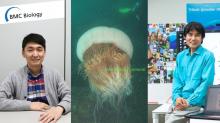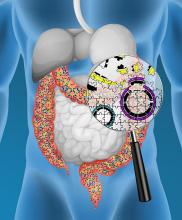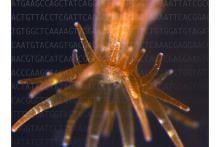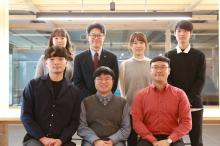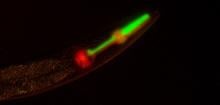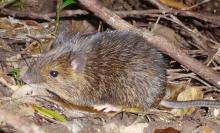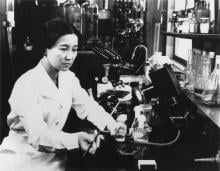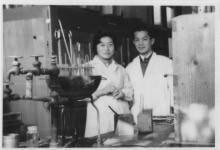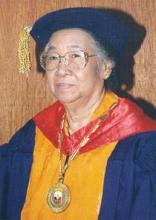Genetics
News
17 Oct 2019
Faulty signalling pathway causes the heart to develop unnaturally while in the embryo stage, according to Duke-NUS Medical School researchers.
18 Sep 2019
The Department of Obstetrics and Gynaecology of the Faculty of Medicine at The Chinese University of Hong Kong (CUHK) has successfully introduced a new genome sequencing technique for prenatal invasive genetic diagnosis. It offers enhanced sensitivity and accuracy of diagnosing lethal and severe congenital disorders through precise detection of pathogenic microdeletion or microduplication in the fetus, compared with the current practice karyotyping analysis and chromosomal microarray analysis (as known as fetal DNA chip testing). The team conducted a study on the innovation and the findings were recently published on the international journal Genetics in Medicine.
12 Sep 2019
A recent study led by researchers from the National University of Singapore revealed that regular tea drinkers have better organised brain regions compared to non-tea drinkers.
27 Aug 2019
An international team of researchers, affilated with UNIST has identified a new gene that causes drug resistance against Novartis’s breakthrough cancer drug, Gleevec (Active ingredient: imatinib).
27 Aug 2019
A recent study, affiliated with South Korea's Ulsan National Institute of Science and Technology (UNIST) has analyzed the genetic map of Nomura’s jellyfish, scientifically known as Nemopilema nomurai, for the first time.
21 Aug 2019
Environmental DNA (eDNA) has successfully proven the presence of invasive crayfish in almost all the small streams around Lake Akan in Japan, suggesting that eDNA analysis is an efficient and highly sensitive method to assess the distribution of aquatic organisms.
19 Aug 2019
A new high-resolution approach using portable DNA sequencers provides a more complete genomic picture of antibiotic resistance in gut bacteria.
12 Aug 2019
Biologists from HKBU have led a study to sequence and analyse the genomes of four apple snail species in the family Ampullariidae and discovered that the apple snails have evolved to become highly sensitive to environmental stimuli, digest cellulose (a major component of the plant cell wall), form hard calcareous eggshells and pack neurotoxins in eggs.
08 Jul 2019
Researchers in Japan have identified the potential genes responsible for coral bleaching caused by temperature elevation.
09 Apr 2019
Research achievement through an Undergraduate Group Research Program (UGRP) was published in an international scientific journal. The finding is expected to lay a foundation for the development of a new personality test method that can complement the existing psychology test.
22 Feb 2019
A gene-editing Trojan horse that sneaks up on osteosarcoma cells could help the fight against this aggressive childhood bone cancer.
22 Feb 2019
Laboratory model breaks laws of heredity, opening up new research possibilities in genetics and synthetic biology.
12 Feb 2019
Study illustrates the links between brain energy metabolism and neuronal activity.
31 Jan 2019
A look at the brains of an endangered spiny rat off the coast of Japan by University of Missouri (MU) Bond Life Sciences Center scientist Cheryl Rosenfeld could illuminate the subtle genetic influences that stimulate a mammal’s cells to develop as male versus female in the absence of a Y chromosome.
21 Jan 2019
Flowering plant parents cooperate to guide proper development of offspring; insight that could lead to new hybrid plants.
Events
Sorry, no events coming up for this topic.
Researchers
Sorry, no researchers coming up for this topic.
Giants in history
Ruby Sakae Hirose (1904 – 1960) was a Japanese-American scientist whose research contributed significantly to our understanding of blood clotting, allergies and cancer.
Pakistani botanist Azra Quraishi (22 September 1945 – 22 November 2002) is recognised for developing virus-free seed potatoes that increased potato production in Pakistan by an estimated five per cent.
Indian botanist Shipra Guha-Mukherjee (13 July 1938 – 15 September 2007) made a breakthrough discovery that enabled the genetic study of plants and, by extension, the development of improved varieties of rice, wheat, potatoes, and other crops.
Irene Ayako Uchida’s (8 April 1917 – 30 July 2013) strides to understand genetic diseases such as Down syndrome paved the way for early screening of chromosomal abnormalities in foetuses.
Reiji Okazaki (8 October 1930 – 1 August 1975) and Tsuneko (7 June 1933) were a Japanese couple who discovered Okazaki fragments – short sequences of DNA that are synthesized during DNA replication and linked together to form a continuous strand.
Tsuneko (7 June 1933) and Reiji Okazaki (8 October 1930 – 1 August 1975) were a Japanese couple who discovered Okazaki fragments – short sequences of DNA that are synthesized during DNA replication and linked together to form a continuous strand.
In his over 30 year career in rice research, Munshi Siddique Ahmad (1924 – 19 October 2011) developed more than 30 varieties of high-yielding rice, including the BRRI Shail strain, which was responsible for increasing the rice production of Bangladesh from 8 million tonnes in 1965 to 20 million tonnes in 1975.
Eminent Filipina scientist and educator Clara Lim-Sylianco (18 August 1925 – 23 July 2013) is remembered for her extensive research on mutagens – often-carcinogenic agents that permanently alter genetic materials such as DNA – antimutagens and bioorganic mechanisms.
Motoo Kimura (13 November 1924 – 13 November 1994) was a Japanese theoretical population geneticist who is best remembered for developing the neutral theory of molecular evolution.
Janaki Ammal Edavalath Kakkat (4 November 1897 – 7 February 1984) was an Indian botanist who studied plant chromosomes and genetics.
Maqsudul Alam (14 December 1954 – 20 December 2014) was a biologist from Bangladesh who is renowned for his research on genome sequencing
Barry Paw (29 August 1962 – 28 December 2017) was a biologist and oncologist who discovered several novel genes and their functions in red blood cells.
Kono Yasui (16 February 1880 – 24 March 1971) was a Japanese botanist who researched the genetics of poppies, corn and spiderworts and surveyed the plants that had been affected by the nuclear fallout after the atomic bombings of Hiroshima and Nagasaki.
Hitoshi Kihara (1893 – 1986) was one of the most famous Japanese geneticists of the 20th century. One of his most significant contributions was identifying sex chromosomes (X and Y) in flowering plants.
Syed Qasim Mehdi (13 February 1941 – 28 September 2016) was a Pakistani molecular biologist who was a founding member of the Human Genome Diversity Project (HGDP), which assessed human diversity by studying human migration, mutation rates, relationships between different populations, genes involved in height and selective pressure.







